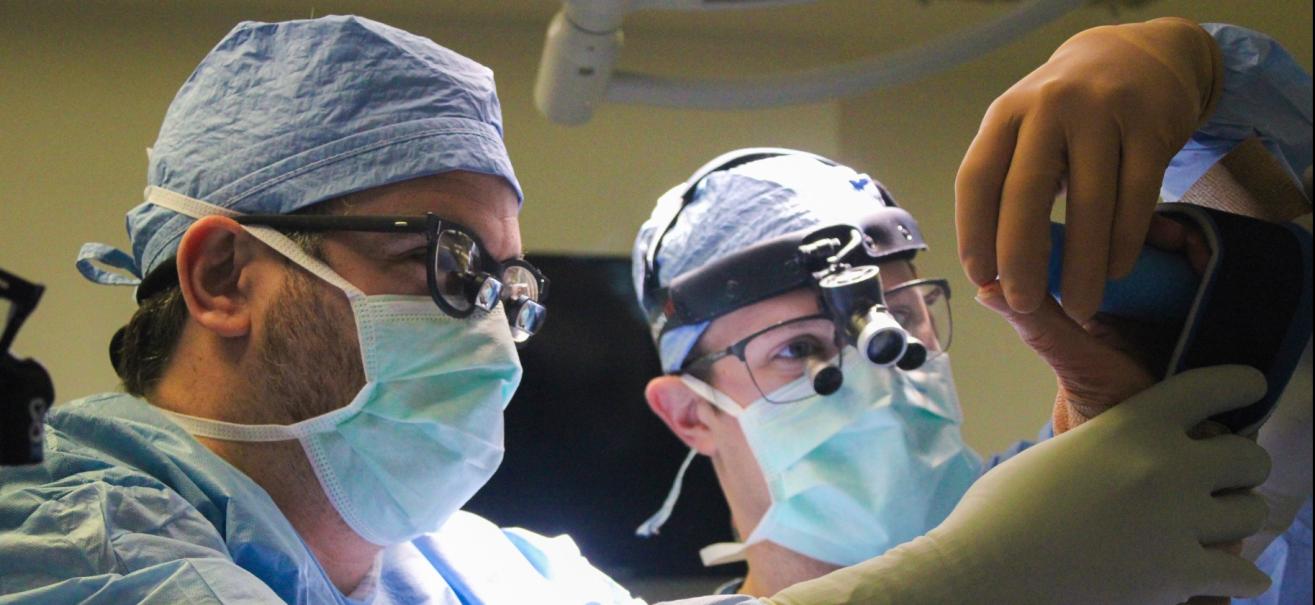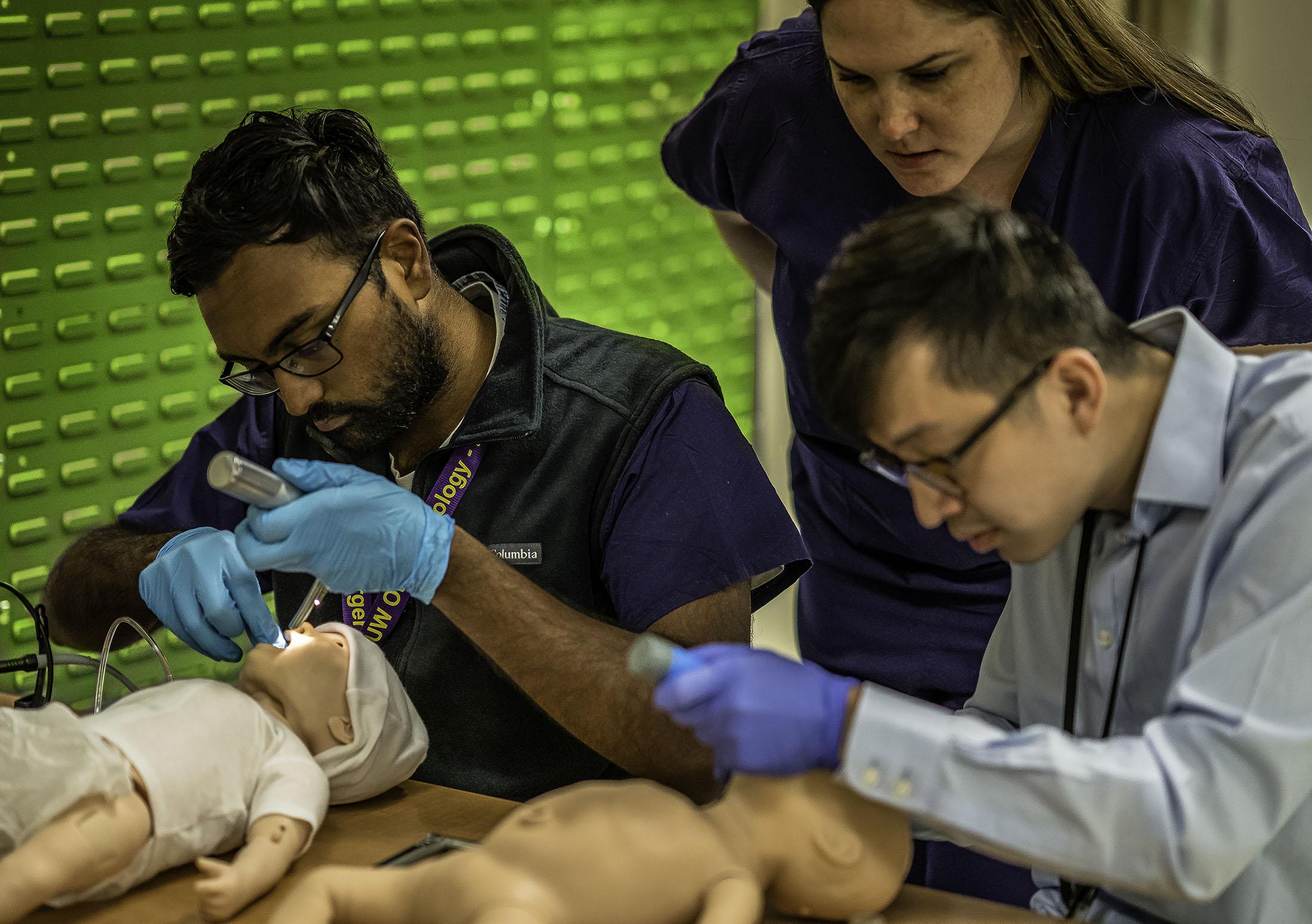Exploring the Field of Otolaryngology: What to Anticipate When You Get In Touch With an ENT
Otolaryngology, typically described as ENT, incorporates the medical diagnosis and therapy of throat, ear, and nose conditions. For those experiencing related concerns, speaking with an ENT specialist can offer clarity and alleviation. Comprehending what to expect throughout such examinations is essential for efficient communication and care. This review will certainly outline key aspects of the ENT experience, consisting of typical reasons for gos to and the procedures entailed in diagnosis and therapy.

Understanding Otolaryngology: A Summary
Otolaryngology, commonly described as ENT (Throat, nose, and ear) medication, is a customized branch of medicine that concentrates on the diagnosis and treatment of conditions influencing these critical locations of the human body. This area includes a variety of conditions, consisting of those related to hearing, balance, breathing function, and speech. Otolaryngologists are educated to take care of both medical and surgical therapies, utilizing sophisticated techniques and technologies. Their know-how extends beyond standard ailments, attending to concerns such as allergies, sinus infections, and hearing loss. Furthermore, they play an essential duty in the monitoring of head and neck cancers, offering extensive care tailored to individual patient needs. In general, otolaryngology remains crucial for maintaining wellness and quality of life in affected people.
Common Reasons to See an ENT Expert
Lots of individuals seek the knowledge of an ENT expert for a range of factors, showing the varied nature of problems that impact the throat, nose, and ear. Typical concerns consist of chronic sinusitis, which often results in relentless nasal congestion and face discomfort. Allergic reactions and their linked symptoms, such as itching and sneezing, also prompt brows through to these professionals (ENT Clinic). Hearing loss, whether unexpected or progressive, is another considerable factor for appointment. Furthermore, people might seek examination for throat conditions, consisting of persistent hoarseness or ingesting difficulties. Sleep apnea, characterized by cut off breathing during rest, is regularly dealt with by ENT experts. Each of these problems highlights the importance of specialized care in taking care of intricate ENT-related wellness problems
Planning for Your ENT Visit
When planning for an ENT visit, it is necessary to collect pertinent info and take into consideration any kind of certain issues. Individuals should compile a comprehensive case history, consisting of previous ear, nose, or throat concerns, surgical treatments, and current medications. Documenting signs and symptoms-- such as duration, regularity, and seriousness-- can supply useful insights for the ENT expert. In addition, people ought to prepare a checklist of inquiries they wish to ask, making certain that all issues are attended to during the browse through. Bringing along any pertinent clinical documents or test results can further aid the ENT in recognizing the person's condition. People should validate their visit information, consisting of area, time, and day, to lessen any last-minute complication. Correct preparation can enhance the performance of the consultation and cause better results.
What to Anticipate During the Appointment
As the consultation begins, the person can expect to participate in a complete conversation with the ENT expert about their signs and symptoms and clinical history. The specialist will ask about the period, frequency, and severity of signs such as hearing loss, nasal blockage, or aching throat. Furthermore, the client's previous clinical conditions, medicines, and any kind of appropriate household background will be evaluated, aiding the specialist in developing a total understanding of the patient's wellness. The ENT may also inquire about way of living factors, such as exposure to toxic irritants or allergens. This open dialogue develops a structure for the assessment, ensuring that the person's problems are addressed and establishing the stage for any required assessments or referrals for therapy.
Diagnostic Tests and Procedures in Otolaryngology
A variety of analysis examinations and procedures are crucial in otolaryngology to properly assess and detect conditions impacting the nose, throat, and ear. Common tests include audiometry, which gauges hearing function, and tympanometry, assessing middle ear pressure. Nasal endoscopy allows visualization of the nasal flows and sinuses, while laryngoscopy examines the throat and vocal cables. Imaging strategies, such as CT scans and MRIs, supply in-depth views of head and neck structures. Allergic reaction screening may likewise be conducted to identify triggers for sinus or breathing concerns. These diagnostic tools make it possible for ENT experts to create a comprehensive understanding of clients' problems, ensuring customized and effective administration plans. Appropriate diagnosis is important for successful treatment results in otolaryngology.
Treatment Alternatives Used by ENT Specialists
ENT specialists supply a variety of therapy alternatives customized to address details conditions impacting the nose, ear, and throat. These treatments range from traditional techniques, such as medicine and way of living alterations, to more invasive procedures. As an example, allergies may be managed with antihistamines or immunotherapy, while persistent sinus problems could call for nasal corticosteroids or sinus surgery. For hearing loss, ENT professionals usually suggest hearing help or surgical interventions like cochlear implants. In cases of throat disorders, options can consist of speech therapy or surgeries to get rid of blockages. Additionally, they might offer support for taking care of sleep apnea, consisting of the usage of CPAP tools or surgical interventions. Overall, the objective is to boost people' lifestyle with personalized treatment and effective treatment approaches.
When to Look For Follow-Up Care With an ENT
Acknowledging when to seek follow-up treatment with an ENT specialist is crucial for handling ongoing signs or problems connected to throat, nose, and ear conditions. Individuals should consider arranging a follow-up consultation if signs linger in spite of preliminary treatment, such as chronic ear discomfort, nasal congestion, or throat pain. Changes in hearing, balance concerns, or uncommon nasal discharge may also warrant additional assessment. In addition, if a patient experiences side impacts from suggested medications or has actually undergone a surgical procedure, follow-up treatment Get More Info is very important to keep an eye on recuperation and resolve any kind of concerns. Timely examinations can guarantee reliable management of conditions, prevent potential issues, and give assurance regarding one's wellness. Seeking follow-up treatment advertises aggressive wellness monitoring in otolaryngology.
Regularly Asked Inquiries

What Credentials Should I Seek in an ENT Professional?
When seeking an ENT professional, one need to try to find board certification, appropriate experience, and strong individual reviews. Furthermore, effective interaction skills and a thoughtful method can substantially boost the overall treatment experience.
How Do I Pick the Right ENT for My Needs?
Selecting the appropriate ENT expert includes reviewing their qualifications, experience, and individual testimonials (ENT). It is necessary to contemplate their interaction style and method to treatment, guaranteeing they align with the individual's certain wellness needs and choices
Exist Any Kind Of Threats Connected With ENT Procedures?
The threats connected with ENT treatments might consist of infection, blood loss, anesthetic complications, and prospective damages to bordering frameworks. People should go over these threats with their medical professional to recognize individual worries and warranty educated choices.
Just How Can I Manage Stress And Anxiety Before My ENT Appointment?
To manage stress and anxiety before a visit, individuals can practice deep breathing exercises, imagine positive end results, prepare questions ahead of time, and look for support from good friends or family, cultivating a feeling of peace of mind and calmness.
What Should I Do if I Experience Negative Effects From Therapy?
If side results from treatment occur, the person should promptly report them to their doctor. Changes to therapy or additional interventions might be needed to guarantee safety my website and security and performance in handling their condition - ENT. As the appointment begins, the client can anticipate to engage in a complete conversation with the ENT expert about their symptoms and clinical background. These diagnostic tools enable ENT experts to establish a comprehensive understanding of individuals' conditions, making certain tailored and effective monitoring strategies. ENT professionals supply a variety of treatment choices tailored to resolve specific conditions affecting the throat, nose, and ear. When seeking an ENT specialist, one must look for board qualification, pertinent experience, and solid look at this now client reviews. Selecting the best ENT expert includes evaluating their credentials, experience, and patient reviews